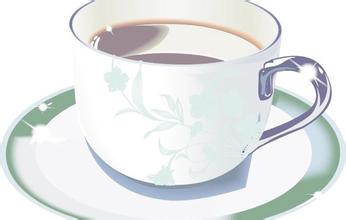Introduction to the flavor and taste characteristics of Ugandan coffee manor with low ripe fruit aroma
Ugandan coffee beans have a unique flavor of delicate taste, which is very suitable for making Italian and other flavors of coffee. More importantly, Ugandan coffee beans are strictly screened according to the standards of the international market to ensure their high quality and pollution-free characteristics.
Africa is the hometown of the two major varieties of coffee, Arabica and Robusta, while Uganda, which is located in eastern Africa, which is known as "plateau water hometown" and "Pearl of East Africa", is believed by many to be the birthplace of Robusta.
Uganda is one of the few countries in the world that can grow both Arabica and Robusta, with an environment and climate suitable for coffee growth. Uganda is located between 9-2000 meters above sea level, with an annual temperature of 15 ℃-28 ℃.
Ugandan coffee beans have a unique flavor of delicate taste, which is very suitable for making Italian and other flavors of coffee. More importantly, Ugandan coffee beans are strictly screened according to the standards of the international market to ensure their high quality and pollution-free characteristics. Uganda is the country of origin of Robusta coffee, but commercial cultivation of Arabica species here did not begin until early 1900. Today, there are still a large number of wild robusta coffee trees in Uganda, which is rare in cities in the world. As a landlocked country, the large coffee cultivation in Uganda is often interplanted, where coffee trees mingle with food crops and rubber trees, because of the unique natural environment, the coffee here spends an average of twice a year, which makes Uganda the largest producer of coffee honey in the world. Coffee is tropical plantation agriculture. The main factors affecting the location of agriculture are: natural conditions are analyzed from four aspects: climate (precipitation, heat, light), topography, soil and water source. Socio-economic factors: market, transportation, policy, agricultural production technology, industrial foundation, labor force, land price; technical and economic factors: improved varieties, chemical fertilizer, machinery, irrigation and so on. It can be seen from the picture that the three countries in the picture are located near the equator, with low latitude, high average temperature and sufficient light and heat; at the same time, on the East African Plateau, the daily range is large and nutrient accumulation is abundant; the local soil is fertile; there are many rivers and lakes and are rich in water; in developing countries, labor is abundant and cheap; and policy support for Mbale in the Elgang Mountains in the east and other producing areas in the west near the border of the Democratic Republic of Congo, then use Wugar as the export name. The official ranks are Oaganic (Organic), BugisuAA, BugisuA, BugisuB, Bugisu PB, Wugar, Drugar and other unlisted grades. To find Ugandan coffee with good performance, you must first recognize the three grades of BugisuAA, An and PB, but because the country is inland and has many transportation problems, it often comes to raw beans with low moisture content and not emerald green appearance, but Ugandan coffee is not a type of coffee that emphasizes aroma, as long as the raw beans are not and turn 100 or yellowed, they can generally have a good flavor performance in the producing areas. It has a low ripe fruit aroma, such as the taste of red wine, and a thick mellow thickness, which is similar to some Kenyan beans with low tone, but with a mild soil flavor, so it is quite different from other East African countries in flavor characteristics. on the contrary, it is somewhat similar to Asian Indonesian Sulawesi Tonaga coffee and Java state-owned manor coffee. The baking degree between City+ and Full City+ is all better.

Important Notice :
前街咖啡 FrontStreet Coffee has moved to new addredd:
FrontStreet Coffee Address: 315,Donghua East Road,GuangZhou
Tel:020 38364473
- Prev

Introduction to the flavor and taste characteristics of Puerto Rico coffee manor with a long aftertaste
Yaoke Yauco is an area of 176.5 square kilometers in southern Poland, named for its production of Tainos, but local residents prefer to call themselves la Ciudad del Caf (Coffee City) and la Capital Tana (Tainos Center). In the 1860s, immigrants from Corsican improved the cultivation of coffee and pioneered the application of flower stickers to the removal of coffee.
- Next

Introduction to the Flavor and Taste of Coffee Manor in Ecuador
As one of the best Arabica coffee producers in the world, Ecuador's unique ecosystem advantages make its coffee from different coffee producing areas have a unique taste. That's why every mouthful of coffee made from Ecuadorian beans, whether it's single coffee or blended coffee, is endless and tasteless. In order to make more
Related
- Detailed explanation of Jadeite planting Land in Panamanian Jadeite Manor introduction to the grading system of Jadeite competitive bidding, Red bid, Green bid and Rose Summer
- Story of Coffee planting in Brenka region of Costa Rica Stonehenge Manor anaerobic heavy honey treatment of flavor mouth
- What's on the barrel of Blue Mountain Coffee beans?
- Can American coffee also pull flowers? How to use hot American style to pull out a good-looking pattern?
- Can you make a cold extract with coffee beans? What is the right proportion for cold-extracted coffee formula?
- Indonesian PWN Gold Mandrine Coffee Origin Features Flavor How to Chong? Mandolin coffee is American.
- A brief introduction to the flavor characteristics of Brazilian yellow bourbon coffee beans
- What is the effect of different water quality on the flavor of cold-extracted coffee? What kind of water is best for brewing coffee?
- Why do you think of Rose Summer whenever you mention Panamanian coffee?
- Introduction to the characteristics of authentic blue mountain coffee bean producing areas? What is the CIB Coffee Authority in Jamaica?

